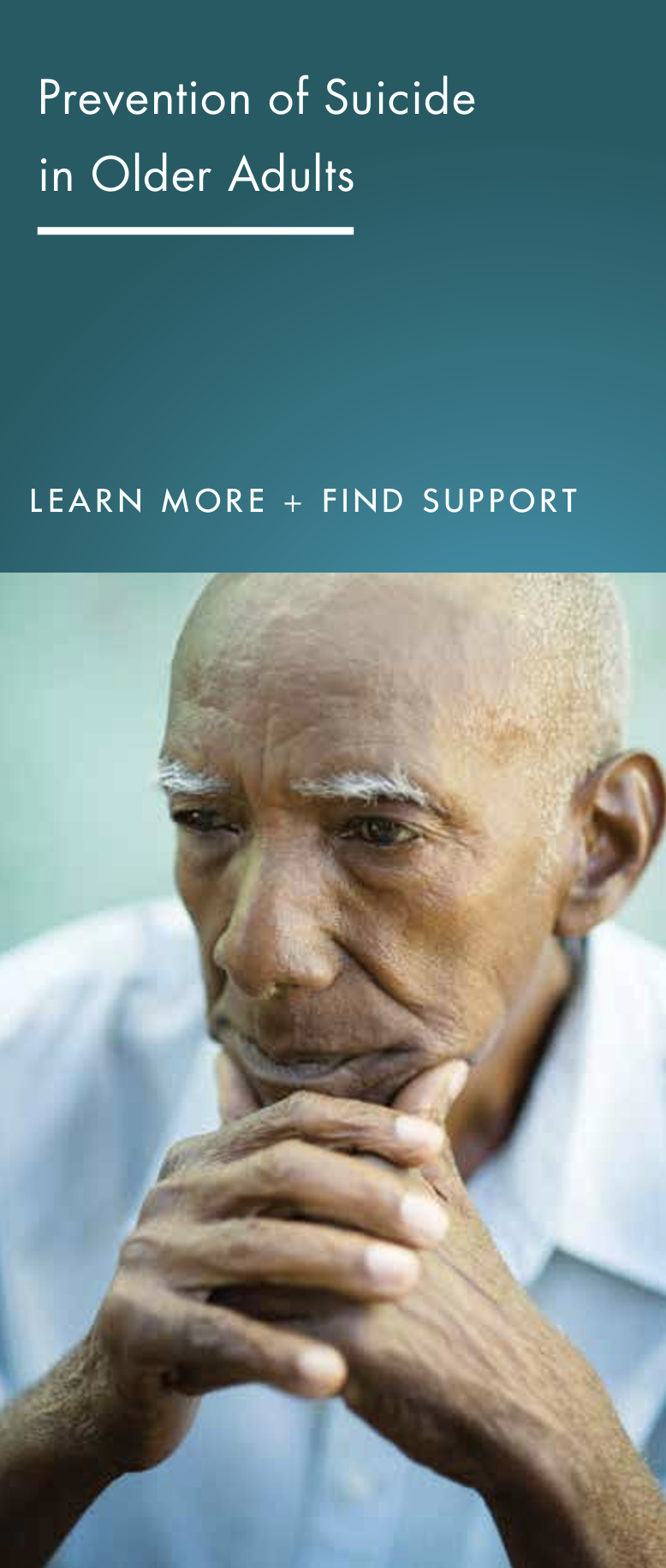Suicide Risk and Prevention – Older Adults and Care Partners
Clinical Guidelines
Discover the guidelines on suicide risk and depression in older adults.
For Health Care Professionals
Find clinical tools and resources to support your patients or clients.
Information for Older Adults and Care Partners
Aging has its ups and downs. For some people, the senior years are the best of their lives. For others, the changes in getting older might be stressful. Health problems, losing loved ones or independence can be difficult and painful. These may lead to feelings of hopelessness. In some cases, having many stresses at once can lead to thoughts of suicide.
Discover Suicide Risk & Prevention Tools and Resources

Translated Brochures
Download or print the brochure about suicide prevention for older adults for information about symptoms and what you can do right now to start feeling better. Available in:
Help us improve our resources:
CCSMH aims to promote older adults’ mental health by connecting people, ideas and resources. Please take a few moments to tell us about yourself and your experience with our resources by participating in this survey.
